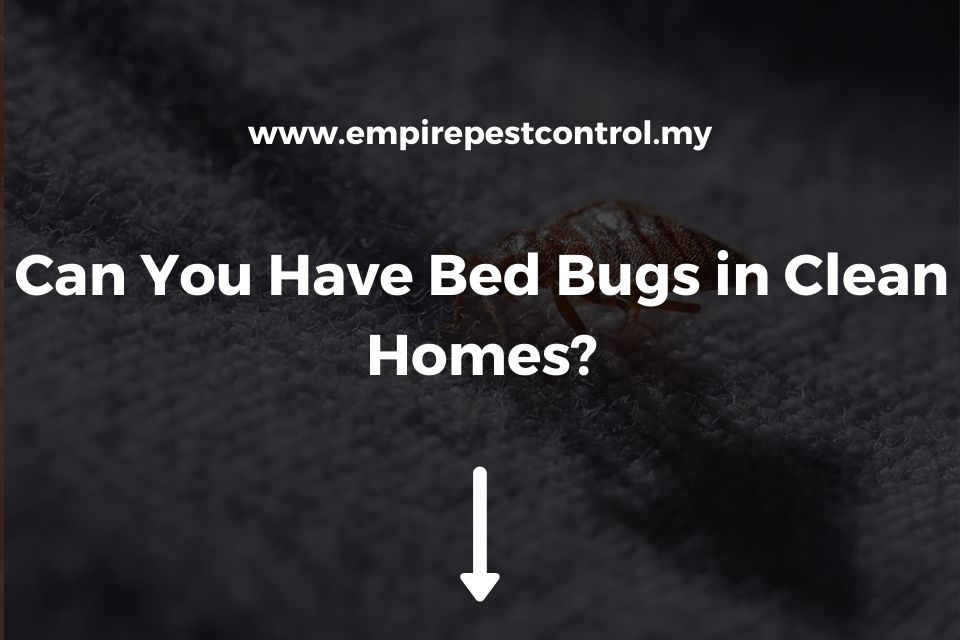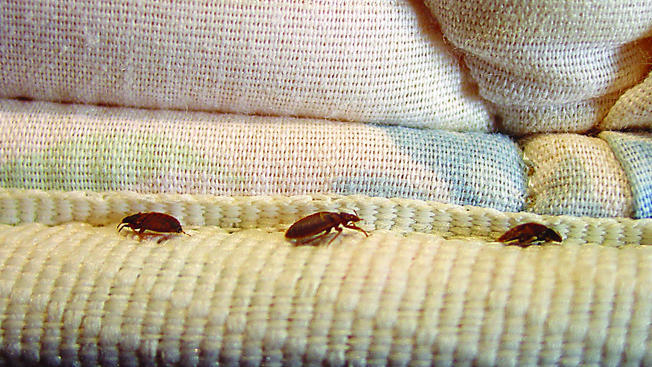Bed bugs frequently infest various households, but is it possible to find them in a spotless home? Absolutely. Bed bugs can thrive in any environment and often remain unnoticed for a while.
This blog will discuss the different ways that people unknowingly get bedbugs, how to identify them, and why you should call Malaysia’s Leading Bed Bug Expert when you find out your house has an infestation.
Contents
Can You Have Bed Bugs In Clean Homes?
It might be hard to believe, but even the cleanest homes can be infested with bed bugs! Unfortunately, bed bugs are very difficult to detect, and even if you’ve never had any instances of it before, your home may be infested.
Most people don’t know they have bed bugs until they see actual evidence or their house has been inspected by an expert recently. However, there are a few ways for homeowners to figure out whether they might have the little pests in their homes.
We tend to connect soiled and unsanitary surroundings with a pest-infested one. So, yes, some pests, such as cockroaches, ants, and rats, are the result of inadequate sanitation and housekeeping.
But that isn’t the case with bed bugs because they aren’t drawn to those sorts of things.
They are exclusively drawn to blood and will go out of their way to get it, regardless of how clean the surroundings are. As they approach the possible host, bed bugs smell carbon dioxide produced by people and respond to warmth and dampness.
How Do You Deal With Bed Bugs?
Bed bug infestations are a problem, and of course, problems need to be addressed. However, for bed bugs, the only way to make sure the problem is fixed is by contacting your local bed bug experts!
However, there are some basic steps you can take to keep your home clean and prevent future infestations:
- Vacuum up crumbs from under beds, furniture, and baseboards.
- Strip down the mattress of sheets
- Wash all clothes that may have come into contact with bed bugs (this includes laundry day)
- Empty any drawers where people store their clothes overnight or for long periods. This will ensure they’re not hiding out until it’s too late!
- You can also try removing your bed and beating it against the floor. This will force any eggs that may be hiding in the creases to fall out.
If you know of anyone else who has dealt with this problem, or if you have a family member who’s had bed bugs before — maybe ask them for some advice too!
Top Ways to Stop Bed Bug Infestation
We are all aware that prevention is better than the cure itself, and in this case, it’s better to prevent and stop bed bugs from infesting than to deal with it when it has worsened already.
To stop bed bug infestations, you can consider the following:
- First, be mindful of what you bring into the house and where it’s coming from. This will reduce your chances of bringing bed bugs to your home!
- Make sure any used furniture that is bought or received as a gift is inspected before being placed in the living area. If there are signs on the wood, metal frame, etc., place them outside for one day, so they can dry out, then put them back inside- but be careful not to let anything infested come with it!
- While mattresses need our attention too, don’t forget about other areas like baseboards and carpets either — these are also common hiding spots for pests such as bedbugs. You should vacuum regularly and look carefully at their seams every time you do it.
- Be sure to clean your clothes regularly, and if possible — wash them in hot water! Steam cleaning will also help kill any bed bugs on the articles of clothing or linens that are exposed during this process.
We should be aware of simple precautions such as these to move a step closer away from a bed bug infestation and lessen the risk of acquiring diseases from these bugs!
Takeaway
As you can see, it’s critical to be aware of the potential places where bed bugs may infest.
This knowledge will assist you in keeping pests at bay and ensuring that no one in your home is at risk of a hazardous infestation. Contact us now for more information on the best methods to be proactive about pest control.


